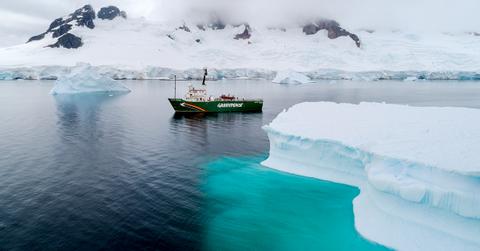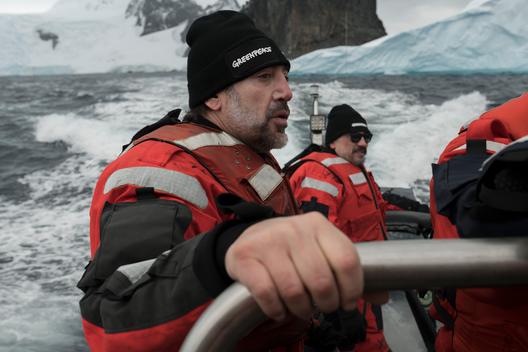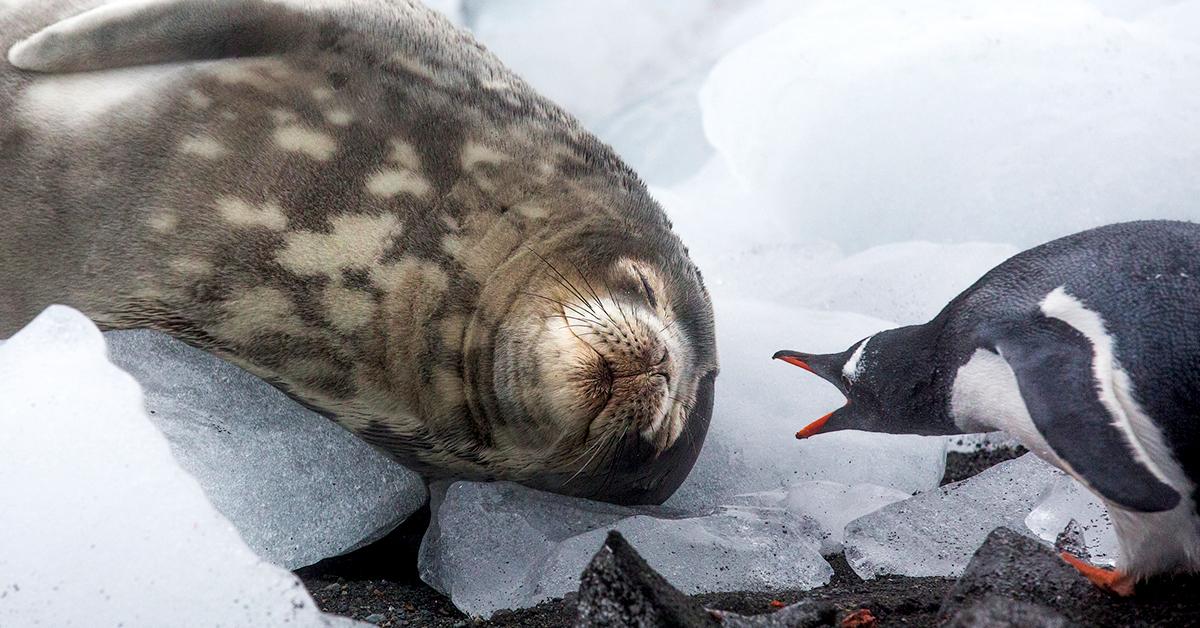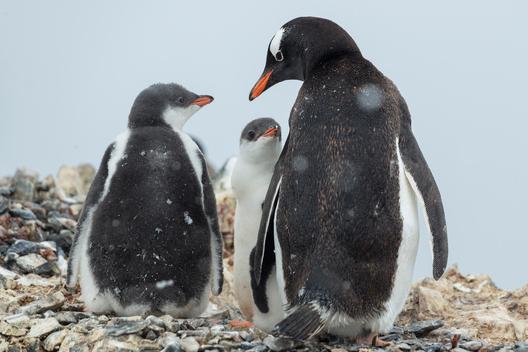Krill Fishers And Greenpeace Come Together In Global Campaign To Protect Antarctic Wildlife
The world's largest ocean sanctuary planned for Antarctica just got one step closer to becoming a reality thanks a global campaign by Greenpeace.
Updated May 31 2019, 12:24 p.m. ET

The world's largest ocean sanctuary planned for Antarctica just got one step closer to becoming a reality. Krill fishing companies and one of the largest environmental protection groups have come together in the name of protecting the Antarctic Ocean.
Spearheaded by Greenpeace and backed by 1.7 million people around the world, a global campaign to protect the remote seas around Antarctica's southern ice cap, has received the unprecedented support of the vast majority of krill fishing companies operating within Antarctic waters. The individual fishing companies honoring the agreement are all Association for Responsible Krill Harvesting (ARK) members, representing 85 percent of the Antarctic krill harvesting industry.
The agreement was announced at Greenpeace’s Antarctic 360° event in Cambridge, UK, attended by scientists and Oscar-winning actor Javier Bardem, who joined Greenpeace’s expedition to the Antarctic in January 2018.
"I am lucky enough to have witnessed the breath-taking wildlife and landscapes of the Antarctic. Humanity's footprint weighs heavy on so much of our shared planet, but this year we have an opportunity to create a vast Antarctic Ocean Sanctuary and protect this stunning wilderness for generations to come. I stand with 1.7 million people in calling on governments to protect the Antarctic," Bardem said.

Actor Javiar Bardem with Greenpeace in the Antarctic
“The momentum for protection of the Antarctic’s waters and wildlife is snowballing. A huge movement of people globally has been joined by scientists, governments, celebrities and now even the companies fishing in the Antarctic. This is a bold and progressive move from these krill fishing companies, and we hope to see the remainder of the krill industry follow suit,” said Frida Bengtsson, Greenpeace Nordic Protect the Antarctic campaign in a statement.
This major announcement will see nearly all krill companies operating in the Antarctic voluntarily stop fishing in huge areas around the Antarctic Peninsula, including ‘buffer zones’ around breeding colonies of penguins, to protect Antarctic wildlife.

"The ocean sanctuary would be the largest protected area on Earth - five times the size of Germany. Ocean sanctuaries are crucial to not only protect the incredible marine life in the Antarctic, like penguins, seals and whales, but also because healthy oceans help to mitigate the worst effects of climate change and ensure food security for billions of people," said Luke Massey of Greenpeace's Protect the Antarctic campaign in an interview with Green Matters.
Krill are tiny shrimp-like crustaceans. According to Massey, "They might be small, but they are hugely important."
Nearly everything in the Antarctic either eats krill, or eats something else that eats krill. They are central to life in the Antarctic.
"Krill gather in huge groups that can often be miles wide and miles wide, with thousands crammed in every cubic foot - some of these pink clouds of krill can even be seen from space. Everything from giant whales to penguins relies on krill to survive. Blue Whales can eat up to 500kg of krill in single mouthful; penguin poop will often be pink because of all the krill they eat; whales and seabirds migrate thousands of miles every year to feast on Antarctic krill; many species including penguins, seabirds and seals have evolved to catch and eat krill. So ensuring that this species thrives has a unique importance," he explained.
Not only are krill important to the other wildlife species in the Antarctic for survival but they also help fight against climate change.
"We know that healthy oceans are one of the best defenses against climate change, and there is even evidence that krill can help with capturing carbon, one of the main causes of climate change in the atmosphere. Krill gather in huge swarms, and only those individuals near the surface are able to feed. Once they’re full, they sink down in the swarm and other take their place. They’re usually at the bottom of the swarm when they excrete carbon-rich poop in fecal pellets that then likely sink down to the bottom of the ocean," Massey explained.
This process called ‘satiation sinking’, according to Massey, helps cycle carbon. "A recent study from the British Antarctic Survey shows that krill might be capturing and storing up to 23 million tons of carbon each year - that’s the equivalent of all residential greenhouse gas emissions in the UK!," he said.
“Through our commitment we are showing that it is possible for no-fish zones and sustainable fisheries to co-exist. Our intention with this commitment is to support CCAMLR’s work on establishing a network of large-scale science-based marine protected areas in the Antarctic,” Kristine Hartmann, executive vice president at krill fishing company Aker BioMarine, said in a statement.

Gentoo Penguins in the Antarctic
The final decision on the sanctuaries of the Antarctic Ocean will be taken by the Commission for the Conservation of Antarctic Marine Living Resources (CCAMLR) in October 2018, when it convenes in Hobart, Tasmania.